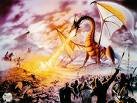Wednesday, June 6, 2007
History
I think about the importance of studying history a lot, partly because people are always asking me, "why study early Canadian literature? isn't it all crap?" One of the things that I think history does, (or archaeology, for that matter, viz our novel Fugitive Pieces), is to preserve the traces of "otherness" in the past -- to point out that people really did think differently than we do, that what seems "normal" now was not always considered normal, and what we think is natural is actually cultural. History preserves the choices that faced people in the past, the options they did not choose as well as the ones they did, and reminds us there are different ways of thinking about things like love, and the self, and the family as well as politics and the natural world. This helps me remember that things can be different, things can be changed, by acting in the present. This is a cheerful thought.
Subscribe to:
Post Comments (Atom)


2 comments:
To describe history as a "preservative" is well put, as long as we are aware of the medium through which the event or idea is being preserved.
Fiction literature is a great way to hold onto the past because it is free to hit upon various "traces of otherness" in creative and unimagined ways.
The fresh breath revitalizes history and makes it relevant in my daily life.
History books are filled with dust and bones: coffins for the dead.
I also like to think things can be different, things can be changed , by acting in the present. I'm uncertain about this. History and Science say man has been around an infinitesimally short time, and so of little consequence. However, he is creative. Literature is creative. Science I see as attempting to define the relationships amongst all matter and energy; History as trying to record factually events of the past. Personally, my hope for change for the better comes from my reading of literature, not Science or History, although I do get a kick out of them. Sojourner
Post a Comment